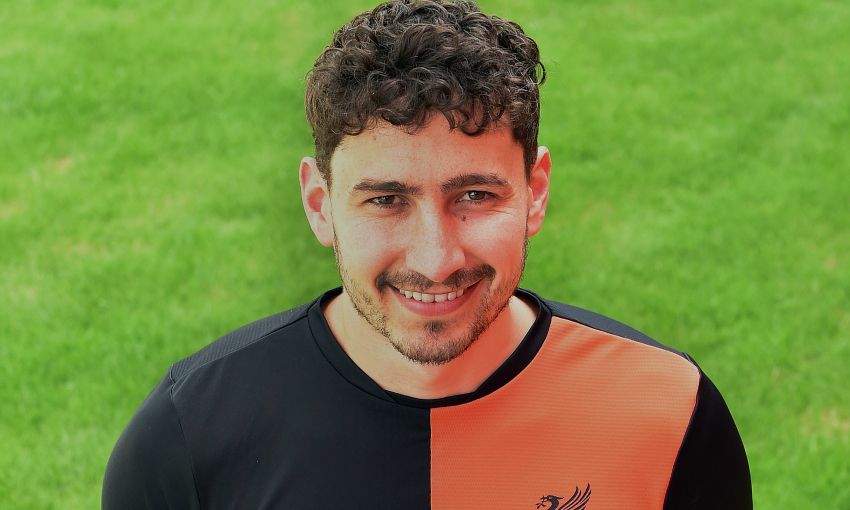Behind the Badge: 'My dream? To play a small part in LFC winning a trophy'
Do you remember where you were just before 9pm on Thursday March 17, 2016?
The half-time whistle had just blown at Old Trafford. Seconds earlier, Philippe Coutinho had slalomed his way past Manchester United’s Guillermo Varela before scooping the ball over David de Gea and into the Stretford End net.
A piece of breathtaking Brazilian brilliance had all but sealed Liverpool’s place in the quarter-finals of the Europa League at the expense of their great rivals.
Chances are, wherever you were in the world, you were feeling pretty good. The section of visiting supporters at the opposite end of the ground to the scene of Coutinho’s latest magic trick certainly were.
Celebratory bedlam had first given way to repeated ‘ole, ole’ in homage to the goalscorer, and then the now-familiar strains of ‘Three Little Birds’.
For Mark Leyland, Liverpool’s first-team post-match analyst and a lifelong Red, this represents an unforgettable and profound moment of professional pride.
“My overriding memory of working here was at Old Trafford at half-time,” Leyland tells Liverpoolfc.com, as we sit down for this chat at Melwood.
“The fans starting singing Bob Marley. That’s a moment I’ll never forget, because normally I’d be in the training room at half-time with the manager but Harrison [Kingston, head of post-match analysis] had gone down.
“I was just like: ‘This is just incredible, I can’t believe I’ve got here. I can’t believe I’ve arrived at this point.’
“I was sat in the gantry and when Harrison came back up I said ‘You will not believe what’s just happened’.
“I don’t know [why that moment is so special]. It was just a moment of realisation, not on a personal level, but I know how proud my dad would’ve been and how happy everyone would’ve been that I was there, where I’d always dreamed of being.
“From a young age I thought I could affect a game, a first-team performance, in some shape or form. And to actually be there, in a big game in the Europa League and we’re going through… it was just a moment of realisation that I’ve done really well. I was really proud of that moment.”
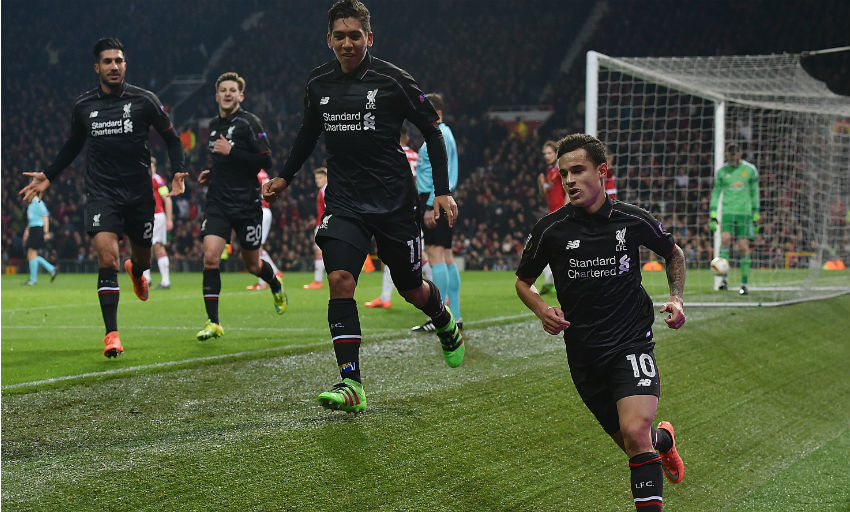
Wirral-born Leyland arrived at Liverpool from Burnley in the summer of 2013. Along with Kingston, he provides post-match analysis on first-team games to Liverpool’s players and coaching staff.
When asked to describe a typical day’s work at Melwood, the 31-year-old says there is no such thing.
“Our role varies game by game and scenario by scenario. There may be a feature of performance that they’re [the coaches] particularly happy with or is an area of concern, so that could take up an hour or it could take up two weeks, depending on the project,” he explains.
“Harrison focuses more on team style presentations - anything to do with defensive shape, offensive patterns, transitions - whereas I deal with individual player performances.
“So if there’s an area of concern or a particularly good area of an individual, I’d go through and find video examples of that to present to the coaching staff and players.
“We do a lot of work in the background, so we’ll database information, all relating to the manager’s philosophy in the case that someone comes to us and says ‘I’d like to see this’.
“We’re always here, there’s always one of us in the office if not both of us. We have players and coaching staff wandering in with ad hoc requests. It’s difficult to say what every day entails, but we’re always active, always producing projects.”
Of the many rewarding moments that come with working for the club you love, Leyland finds the process of assisting individuals among the most satisfying - as shown in his recollection of the story behind Danny Ings’ first Liverpool goal.
“So, for example, I’ve got a really good relationship with Danny from our time at Burnley and we’ve done a lot of work on his movement patterns,” he says.
“It’s something we’ve worked on for years and years and then to see, for example, his goal against Norwich where he runs in behind - to see him time that to perfection and finish it, you sit there and think ‘I’ve helped him achieve that’.
“Even though it’s all him, there’s that little part of you that feels that. It’s unbelievable.”
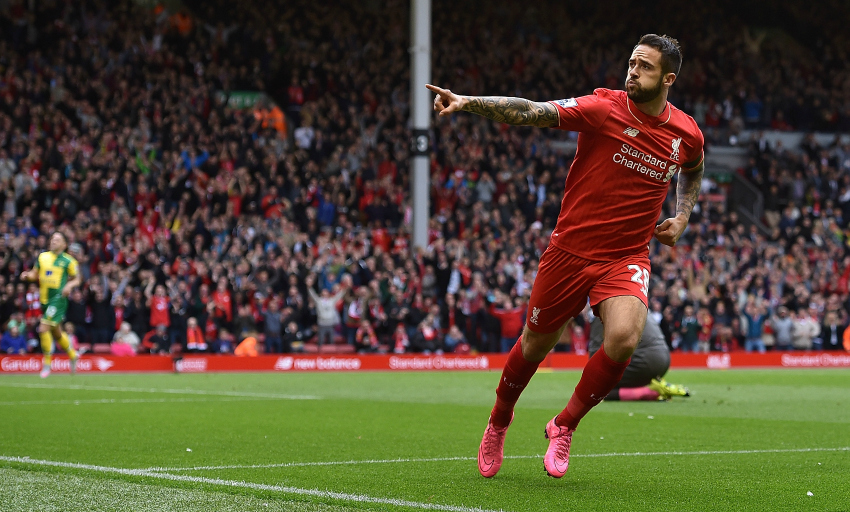
Leyland’s work never stops. He and Kingston travel home and away with the Reds and have a key role to play on matchdays - particularly at half-time, when their analysis is relayed to the players by Jürgen Klopp, via Peter Krawietz and Zeljko Buvac.
“We’re there throughout the day and evening the night before in the hotel, so for any player requests about the opposition or our own style of play for that game, we’re there for them,” he continues.
“On a matchday, we collect video through a number of different video angles, process them into laptops and make video examples during the game.
“A lot of them are team-based because of the short window you have at half-time. We maybe have two or three minutes to discuss the video clips, then three or four minutes to present to the players.
“We present to Peter about two minutes before half-time. We select the clips that we think are most relevant, we’ll then show that to Zeljko and Jürgen as they come in and then we’ll present that on a big screen in the changing room.
“The manager’s always the one who talks through it. It’s always from the manager’s mouth, which is really powerful. The way he does it, the simplicity and efficiency with which he does it, is so powerful.
“We’re there then after the game for any player requests, distribution of video to staff, immediate post-match analysis, then that leads into the next week. It’s all very continual, it’s a process that never really ends.”
We’ve already discussed half-time at Old Trafford during last season’s run to the Europa League final. That was a joyous, almost life-affirming, experience for Leyland.
But what about four weeks later at Anfield, when all sane logic dictated that Liverpool were on their way out of the tournament having been shocked by Borussia Dortmund’s electrifying start to the second leg of their last-eight tie?
What did Leyland and Kingston put together to be presented in a deflated, despondent home dressing room at the break?
“Believe it or not, that was one of the moments we didn’t show any video at half-time,” he reveals.
“The manager is unbelievably good at reading the situation at half-time. His decision-making is one of the things that I think stands him apart - no disrespect to other people I’ve worked with, but his decision-making and the way he relays information at half-time is so good.
“He’s really clear, he’s obviously really passionate, but his knowledge of when to give information and when not to, of what to give and what not to, is just at a different level.
“He sees everything and he understands every situation and every feeling the players are going through, so that was one situation where he decided that it was just time to talk to the players.
“To be honest, it was a whirlwind, I can’t remember what was said in that changing room with everything that happened afterwards!
“I’ve never felt anything like that as a member of staff. That’s when you sit back in the changing room after the game and just think: ‘What has just happened? What have we just witnessed?’”
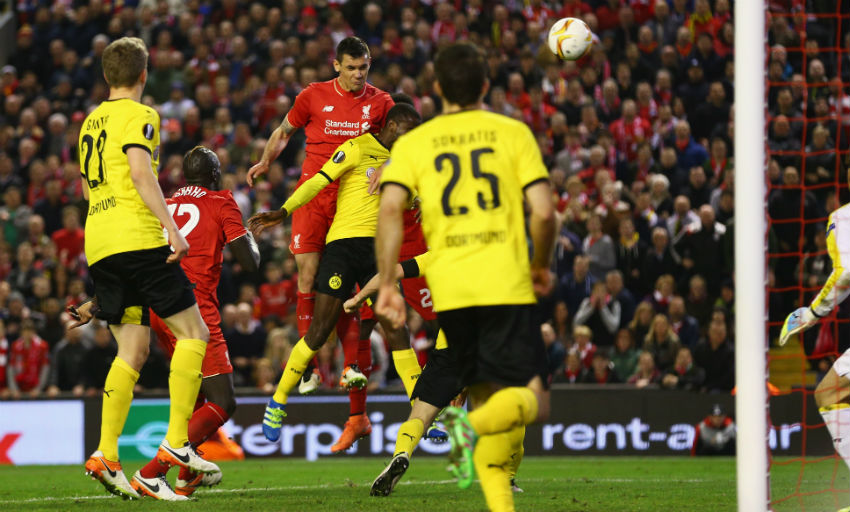
When you have a family full of ardent Liverpool fans and a dad who counts three European Cup finals among the Reds games he’s been to, you don’t really have a choice as to where your footballing loyalties lie.
Like most young Reds in the 1990s, Leyland grew up idolising Robbie Fowler - ‘What a player!’, he smiles - and his first taste of watching the Reds live was a Stan Collymore-inspired 7-0 Anfield thumping of Rochdale in January 1996.
That was the first match of ‘hundreds’ he went to as a fan - a list that also includes a certain game in Turkey, his attendance at which he owes to a man whose name many Reds will recognise.
“I was in Istanbul with my dad. My best friend, who I was best man for at his wedding a few years back, was actually in the Liverpool squad for European games - his name’s Dave Raven,” Leyland says.
“He’s a day older than me so I’ve grown up with him in school and he managed to get us tickets through his allocation with the club.”
From an early age, Leyland’s love of Liverpool and football in general went beyond ordinary fandom - and his interest in the statistical, analytical side of the game would eventually lead to him beginning his professional career across Stanley Park.
“I was around 14 or 15, and I knew I wasn’t going to be a good footballer but I still studied football,” he explains.
“I watched it religiously, my dad was quite studious and I had a couple of friends who were clued up. This was at the start when a few stats were coming into the game, so we used to look at them and discuss them.
“I never thought it could be a career until I went back to John Moores to do my Masters [in sports and exercise sciences].
“When I was at uni I saw that clubs had links with universities, but I never really got involved with them during my undergraduate degree. When I went back to start my Masters that was the first thing I did.
“I said ‘I’d love to be an analyst and I want some experience’ and they gave me that opportunity at Everton’s academy.”
In the space of four years, Leyland rose from an internship to the position of head of development analysis in the Blues’ youth set-up.
While he has nothing but fond memories of his time with Everton, Leyland always knew he wanted to make the step up to operating in a first-team environment.
That opportunity arose in the summer of 2012, when a position on Eddie Howe’s staff at Burnley, then in the Championship, became available.
An eventful season at Turf Moor ensued.
Leyland was thrust into a role as the Clarets’ sole analyst, producing live-match, opposition and post-match analysis all in a three-day turnaround - ‘I learned and developed so much in the first two or three months,’ he recalls - before Howe left the club just a few months after Leyland’s arrival.
“It was a bizarre situation because I got on with Eddie so well. I was just fortunate enough that the staff who came in, Sean Dyche and his team, were so good,” he says.
“There were worries about whether you keep your job but they made it clear straight away that they wanted to work with everyone. They were outstanding.
“So within a five to six-month period, I’d got to work with two of the most highly-regarded footballing staff in the country, which for me was unbelievable.”
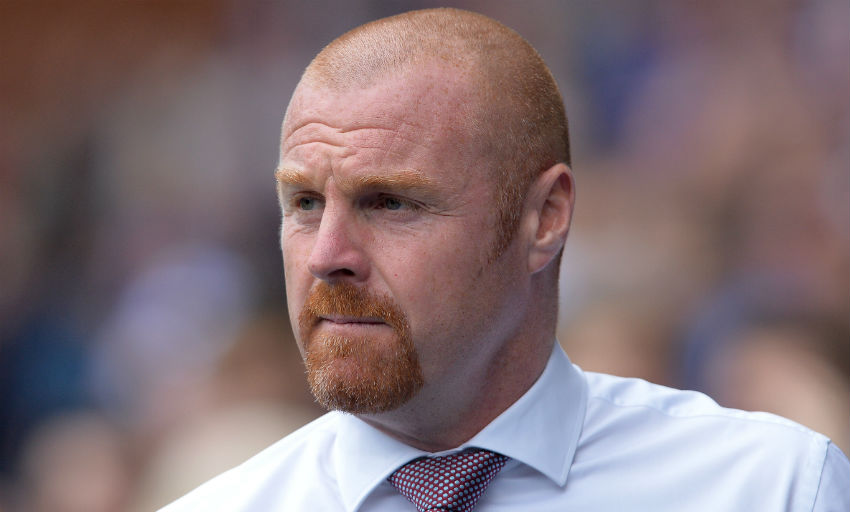
Just 12 months after his move to Turf Moor, Leyland applied for a vacancy that would see him move back to Liverpool - and this time, to the red half of the city.
Several interviews later, he had earned the chance to fulfil his childhood dream of signing for Liverpool Football Club.
“Although I absolutely loved it at Burnley, it was something I could never turn down - I would never have been able to live with myself if I’d turned it down,” he says.
In the space of a year, Leyland had gone from working at Everton’s academy to discussing individual performances with the likes of Steven Gerrard.
“Anyone who says don’t meet your heroes has obviously never met Steven Gerrard!” he smiles.
“He’s that influential and an incredible person. The first time I met him I just thought ‘I cannot believe I’m going to be working with you’.”
Leyland worked under Brendan Rodgers for a little over a year before the Northern Irishman's departure led to Klopp’s arrival, and Leyland’s first experience of operating with a non-British coaching team, in October 2015.
“We were fortunate enough to go from one brilliant set of staff to another unbelievable set of staff,” he says.
“The demands of British and continental coaching teams are pretty equal, it’s just the different approach people have.
“Brendan and his team had a very distinct style of play and he was very prescriptive with information. A lot of the players would come in and sit with the analysts and study performances before and after games.
“Jürgen and his coaching team - they like the players to feel from within, they’re a bit less prescriptive and give out less information.
“They take in a lot of information themselves and then distribute it how they deem fit. So the work we produce in the background doesn’t change, it’s just the end product that changes in how it’s delivered to the players.
“So a lot doesn’t change, but everything changes at the same time, if that makes sense.
“It’s great to experience, you always want to develop and keep learning and get better in everything you do, so to have all these different experiences is brilliant. As analysts it’s pushed us on to another level.”
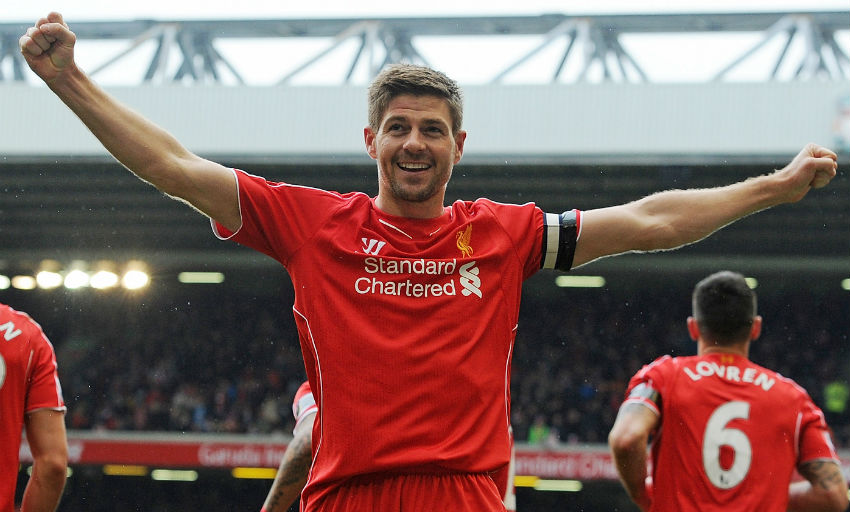
The respect Leyland has for Klopp, both professionally and personally, is evident throughout our conversation.
“The manager is the figurehead to everything we’re trying to achieve. Everything that he does is with the right things in mind, and as a staff member that’s all you can really ask for,” he states.
“He’s always very honest with you, whether he wants more or less. Our relationship with him as a staff and a playing staff is unbelievable.
“You see that on the field, and you see it in the hotel the night before the game - if you sit and chat with him, on a personal level he’s such a great character and then on a professional level he’s obviously incredibly talented.
“You do get that feeling of ‘We all want the same things, we’re all striving to be the best’ and that’s something he believes we can be. His belief filters down through everyone else, and you’re starting to see that in the confidence and attitude of everyone.”
Liverpool’s performances so far this season are certainly indicative of Leyland’s assertion that the boss’ attitude has permeated into the mindset of his players.
This is perhaps demonstrated best in Leyland’s illuminating response to a query about the aftermath of the aforementioned, scarcely-believable defeat of Dortmund in April.
“There was the period of 10 or 15 minutes where everyone’s just high-fiving and hugging, and then afterwards… I think it’s underestimated on the outside just how much it [the game] means to players,” he replies.
“People on the outside think they care, but it’s so much more than that. The usual players will come and see us and say ‘Could I have affected that goal? In that situation could I have done this, could I have done that?’
“So the same process happens after the game. You have players coming up to you and asking ‘Can I see that?’ or ‘What are your thoughts on this?’ and that doesn’t change.
“They obviously knew we’d not really won anything, so straight away they were back to learning, back to ‘What can we do better to avoid that happening again? We can’t be 2-0 down at half-time to a side as good as Dortmund because we won’t win again’.
“We’d just gone through the most emotional rollercoaster you can in a football match, but then it was professional heads on, back to work.
“Even if you win a league or you win a cup, you’ve got to go and do it again. The players are the most aware of that.”
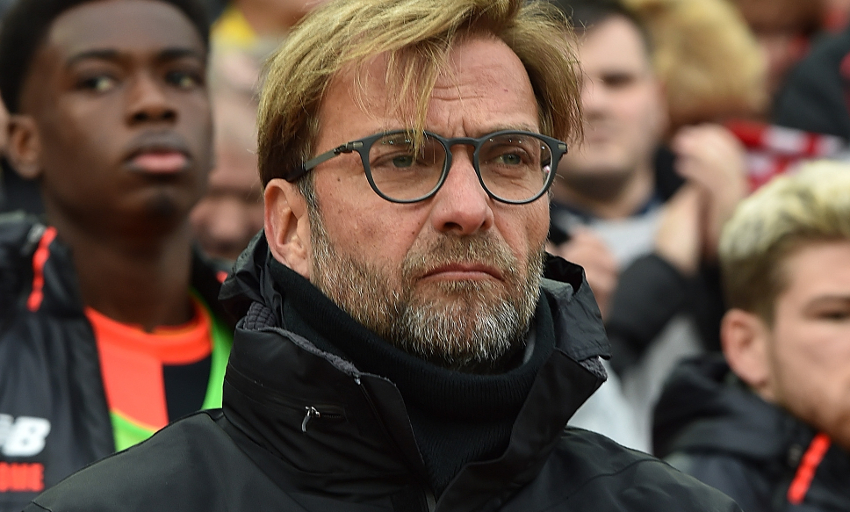
Melwood is, to borrow a phrase from Klopp, Liverpool’s ‘headquarters of football’.
It’s also Leyland’s office.
“It’s still a bit bizarre!” he admits, when asked how it feels to count Liverpool Football Club as his employer and the West Derby training ground as his place of work.
“I am a Liverpool fan, but I’m not a Liverpool fan anymore - I’m a Liverpool employee. It means so much more and you almost can’t be a fan, you have to be objective, away from what you were as a fan.”
A broad grin then breaks out across Leyland’s face.
“But there’s times when I almost become a fan again, where I walk in and I look up at the European Cup and I think ‘I was there, I spent three, four months of my part-time uni wages to try to get to Istanbul just to see that moment, to see Stevie lift that trophy’,” he adds.
“And the little moments, like sometimes you’ll receive a text message from the manager. It’ll flash up on your phone and you’ll think ‘That’s the best manager in the world sending me a text, how has that happened?!’
“They’re the moments, the unique instances. It’s not the moments you think, like when someone scores a goal at Anfield - it’s not then.
“It’s when you take time to sit back and reflect and think ‘Wow, it’s been some journey over the last 10 years’ and hopefully it’s just starting.
“I’ve had so much experience over the last year or so of going to finals and I just want to keep trying to be that small part in the process of winning a trophy. That’s my dream.
“If someone would’ve told me that as a kid, my mind would have been blown.
“To be able to do that and see my dad’s face if I did that - that would be the best thing you could possibly imagine.”
Behind the Badge: Pepijn Lijnders>>
Behind the Badge: Neil Critchley>>
Behind the Badge: Vicky Jepson>>
Behind the Badge: Scott Rogers>>
‘Behind the Badge’ is a regular feature on Liverpoolfc.com which aims to tell the individual stories of the numerous men and women who work tirelessly away from the spotlight in an attempt to make Liverpool FC successful.
Over the course of the season, we’ll be speaking to various members of staff across the first-team, Academy and Ladies set-ups who dedicate their lives to the club each and every day, covering a variety of different roles that make a vital contribution in preparing the Reds for action.


